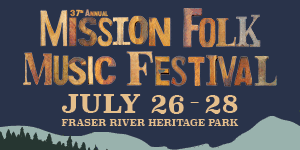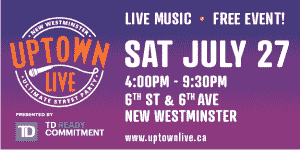
Camping with friends and family is a wonderful activity. Sleeping in a tent is fun, but staying in an RV or camper, if you can, is arguably the best way to go!
Wondering why camping in recreational vehicles is so popular these days? Check out our list of 12 reasons below. Or, for a list of places to go camping, see our article about Camping in and Around Vancouver.
TIP: If you want to learn lots about RV-ing, or want to buy a recreational vehicle, or get new equipment for your current one, then you’ll want to attend one of the Lower Mainland’s annual RV shows. The Earlybird RV Show takes place at the TRADEX Centre in Abbotsford in February. The Snowbird RV Show happens at the same venue in the fall. Both are amazing events!
Why Staying in an RV is Better than in a Tent
Don’t get us wrong! Tenting is awesome, and the most affordable way to go camping. We do it all the time! If you can afford it though, and want to pamper yourself, then seriously consider a recreational vehicle. And if you don’t have your own RV or know someone you can borrow one from, then consider renting. It’s like having your own hotel room in the woods!
We went camping earlier this summer, in a tent, and had a wonderful time. On a more recent trip, however, we used a rental motorhome from Fraserway RV, and wow are we ever glad we did!
On our last camping excursion the forecast had been for lots of rain. Had we been tenting, we likely would have cancelled the trip altogether and not even gone. In the end though, the weather was far better than expected. It only rained a bit, and at night, but enough to have soaked our tent thoroughly had we been staying in one.
It was so nice to be warm and dry in our RV! We thoroughly enjoyed all the other benefits of our motorhome too! After our most recent experience, we may never want to go back to tenting again (or at least not every time)! We have indeed been converted!
Below are a dozen reasons why camping in a recreational vehicle is better than staying in a tent.
1. RVs are way better in the rain
It rains a lot in the Lower Mainland (in case you hadn’t noticed)! For this reason, recreational vehicles are far superior to tents. That’s especially the case when camping on BC’s south coast.
On our most recent tent camping trip, it was sunny for two days, but then rained on the third and final night. It only rained lightly, but enough to make everything wet. Had it rained more, we would have been miserable and probably headed home the day before. Had we been in an RV though, we could have kept dry and played games inside. Also, packing up a tent in the rain is no fun!
Three days after getting home from our last tenting trip, we were still drying out our gear! And four days later, our van still had a bit of a post-wet-camping-trip musty smell because of the dripping wet tent it had been transporting. The van is fine now, but the vehicle definitely didn’t appreciate the soaking wet equipment.
In short, the walls of an RV offer far better protection against the rain than the fabric of a tent. And if it rains a ton, you won’t risk waking up in a puddle!

2. RVs are easier to set up in the dark
Have you ever reached your camping destination late at night and had to set your tent up in the dark? What an awful way to start your holiday! This can happen when you can’t head out until the end of the day because of your job and your campground takes a few hours to drive to. It can also happen when you get stuck in traffic – like on a long weekend or because of a car accident on the highway – and you arrive at your spot hours later than expected.
Arriving after dusk and having to set up your tent in the dark isn’t fun! You have to hold both your flashlight and the tent peg in one hand while using the hammer with the other. You also need to hold your flashlight (and/or use your car headlights) while you put tent poles together, put up the tarps, unpack your vehicle and set up your bedding. And if it’s both dark and raining, it can be a nightmare!
Setting up a recreational vehicle is almost always so much easier than setting up a tent (unless you are camping with the absolute basics or you have a more-than-average-complicated RV). And setting up a camper is infinitely easier to do in the dark. All you have to do is pull in, make sure you are on level ground, do a couple of other things and then go inside (where you can turn on the light switch)! And if more needs to be done on the outside, like putting up the awning, you can wait and do that in the morning!
3. RVs require less packing
When we went camping earlier this summer there were just three of us – two adults and a teenaged boy. Although just a small party, to fit all our gear, we had to take two vehicles. And even then we still didn’t have room for our bicycles (or at least our vehicles would have complained if we had because of the additional weight)!
Tents, mattresses, a portable stove and cooking gear take up lots of space! And packing it all in the car and then unpacking it both at the campground and then again when you get home at the end isn’t the most fun either (especially when you have to unpack and everything is wet).
Also with recreational vehicles, you don’t have to pack everything because the bed, chairs, dishes, utensils and many other items usually stay in your vehicle. With some you just need to pack personal items, food and your clothes.
When you rent an RV you can also ask for the bedding, plates, utensils, dish soap, and pots and pans to be included. We did that when we used a rental motorhome from Fraserway RV and it was wonderfully convenient!
Related to packing, when at the campground, another great thing about RVs is the fact they have their own running water. Consequently, you don’t have to carry water jugs back and forth between your campsite and the public tap every time you want a cup of tea or need to wash the dishes. You can just turn on the tap in your vehicle.
RVs do still take a bit of time and effort to pack, but nowhere near as much as a car (or two of them)!

4. Sleeping in an RV is way more comfortable
Unless you are using mattresses that are really old, sleeping in a recreational vehicle is almost always more comfortable than in a tent. Simply hanging out in a camper or motorhome is also far more comfortable than sitting in a tent.
Air mattresses are way nicer than thin foam mattresses that people had to sleep on years ago. Unless you are a really good sleeper, however, they can still be tough to get a good night’s sleep on. And whenever we go, 9 times out of 10, one of the mattresses seems to have a slow leak. Somebody always wakes up finding themselves on the hard ground.
Another way that RVs are more comfortable than tents is the temperature inside the vehicle. In really cold weather, the recreational vehicle will be much warmer than a tent. In summer, they can both get warm. If there aren’t trees for shade, however, a tent can cook in the sun!
TIP: If using an air mattress, always have a backup one handy just in case!

5. Traveling in an RV is more comfortable than in a jam-packed car
Related to some of the points above, especially if driving a long distance, a spacious RV is far nicer to travel in than a car or truck that’s crammed to the top with gear.
Cars can be fine when you have young kids who don’t mind having sleeping bags or other gear on their laps for a few hours. They are also okay if you don’t mind reduced leg room because you need the space for other things. For bigger people though, traveling in an overstuffed car on a hot day for long distances isn’t fun. And it’s even worse on the way home if all your gear is wet!
Whether you end up driving to your destination in the RV or in your car, if you can put most of your gear in the recreational vehicle and/or don’t have to pack so much in the first place, the journey to your destination will be that much nicer.

6. Recreational vehicles can be quieter than tents
Nature is a wonderful place to be. Birds though can be pretty noisy at 4 o’clock in the morning. Neighbouring campers can also be pretty loud sometimes, as can vehicle traffic on roads both within the campground and further away.
RVs won’t keep out the sound of nearby passing trains, and it’ll only be a tiny bit better with other sounds if you have all the windows open. From our experience, however, because of the difference in the thickness of the RV walls compared to the fabric of the tent, we’ve had much better and quieter sleeps when we’ve stayed in a camper. RVs are also darker at night and early in the morning than tents, which makes for a better sleep too.
7. Campers, motorhomes and other RVs have power!
Even if your campsite doesn’t have power hook up, your RV does still have a battery. It also has propane for the fridge and stove. You might not be able to use the battery all the time, but boy is it nice when you want to switch on a light briefly to find something, or you need to charge your phone or other electronic devices!
With an RV, it’s also nice to have a fridge you don’t have to keep ice (that’s always melting) inside to keep everything cool. And when you do have electrical facilities at your site, wow, is it ever wonderful to have unlimited electricity! It’s like having a hotel room in the forest!
When we used a rental motorhome on a trip up to Whistler in the summer we used lots of lights. We never plugged in, and we never ran out of power. It was wonderful! The vehicle came equipped with a solar panel on the roof, which was nice to have. The RV also had a backup generator. Had our batteries died, which they didn’t, with the flip of a switch we could have made our own electricity!
8. Most RVs have their own bathrooms
It’s a treat not having to get dressed, go outside and make your way to the washroom when you wake up in the middle of the night and have to go pee! Even more so if you know there have been sightings of dangerous wildlife in the area. With most RVs, you have the option of not having to venture out. You also don’t have to brush your teeth and wash your face at a sink in a public washroom that’s used by dozens of other people.
An RV acts as its own self-contained isolated vehicle when necessary, which is wonderful. No matter where you are, there’s a bathroom close at hand. Plus there is food, water, electricity and even a bed whenever you need it!

9. RVs are better than tents for security
In BC’s parks and campgrounds you can never leave food out in the open when you aren’t right there with it. Doing so attracts bears and other animals. If staying in a tent, if you leave your site, even for just a few minutes to go to the bathroom, you’re supposed to put everything edible away and lock it in your car. That’s important to do, both for your safety and that of the animals. It’s also, however, a nuisance to do.
Having to pack up and lock everything in your car every time you leave your site is a pain! You don’t have to do that though if your food is already in your recreational vehicle. And you don’t have to take all your food in and out of your car at night and again in the morning either. Also, possessions left in a locked RV are always safer than items left in a tent when it comes to thieves!
Related to security, another way RVs are safer than tents is when there is a wind storm. It can be dangerous sleeping in a tent under big trees when there is a serious wind. And if branches don’t fall on your tent, you could still have a sleepless night worrying that one might.
If you are sleeping in a camper or motorhome with a hard roof and walls, you’ll be much safer in a storm (and drier too if it’s accompanied by rain). Just don’t forget to retract your awning when there’s a wind!
10. RVs are usually easier to move than tents
Have you ever tried to move a tent from one campsite to another? It’s not easy, or at least it takes a fair bit of time and effort!
Have you ever shown up at a campground without a reservation and found that one campsite is available for the first night, but for that one night only? Another site is available the next day for longer, but you’ll have to stay in the one place and then move to the next.
Or maybe you’ve had to reserve two different campsites at the same campground because no single campsite was available for the full duration of your vacation. Or perhaps you’ve found you’re not in a very nice spot, like right by the highway, and that the very next day a much better spot becomes available, like maybe one with views of the lake.
What a nuisance it is to pack up and move to a new spot just a short walk away! But that happens sometimes, and it has for us!
As already mentioned in one of the points above, RVs are usually much easier to pack up and move than are tents and other tenting-related gear. That’s not always the case, and RVs do require a bit of set up. They are generally much easier to pack up and move short distances though, so definitely nice in the above-mentioned sorts of cases.
11. It’s warmer in an RV and you can use it for camping all year
Campers, motorhomes and other RVs usually have heaters. They are also insulated and comfortable in all kinds of weather. And they don’t get blown over in high winds. The same cannot always be said of tents.
If you plan to go camping in June, July or August, or in the first week or so of September, a tent will likely be fine (recognizing of course that it rains a lot on BC’s south coast, and especially it seems in June, at the end of August and during most holiday long weekends). If you want to sleep in the great outdoors in most other months, however, unless you are an avid outdoors person, chances are you’ll be way warmer and more comfortable in an RV or camper!
12. Tenting isn’t for everyone, but RV-ing can be!
We love all kinds of camping, but not everyone does. For some people, the idea of sleeping in a tent, in a sleeping bag and on a foamy or inflatable mattress is no fun at all. And it seems the older we get, the less appealing “roughing it” becomes. And not everyone will enjoy spending time in an old RV that should have been retired 20 or more years ago.
Who can complain though about spending time in a luxurious and nearly-new RV with hot water, a flush toilet, full kitchen and all the comforts of a hotel or home while enjoying unlimited access to nature? Some people could probably still complain, we suppose, but not very many!
If you can afford a new recreational vehicle, what a great investment that will be for you. What a treat for your family, your kids or your grandchildren and their friends too! And if you simply decide to spoil yourself and rent an exceptionally nice one for a few days, or weeks, what wonderful memories you and your family will make!

Article Summary
In conclusion, compared to tents, RVs are better in the rain, easier to set up, require less packing and are way more comfortable. They also have their own power and bathrooms. They offer a number of extra safety and security benefits too. Recreational vehicles are also warmer than tents and allow people who don’t like the idea of “roughing it” to still spend time close to nature.
Whether you go camping in a tent, camper, trailer or other kind of RV, chances are you’ll have a wonderful time! Regardless of your type of accommodation, go camping! Get out there and enjoy nature and all that British Columbia and area parks have to offer!
Fraserway RV is a proud sponsor of this article for the 2020 camping season. Wishing everyone a fun, relaxing and safe summer of camping and making memories! Happy exploring!
Other Information
Other articles that might be of interest include the following:
- Lower Mainland Parks and Nature
- Outdoor Recreation
- Vancouver Summer Activities
- Metro Vancouver’s Top 100 Places
- Vancouver Rainy Day Activities
- Camping in the Lower Mainland
- Earlybird RV Show
- Snowbird RV Show


































